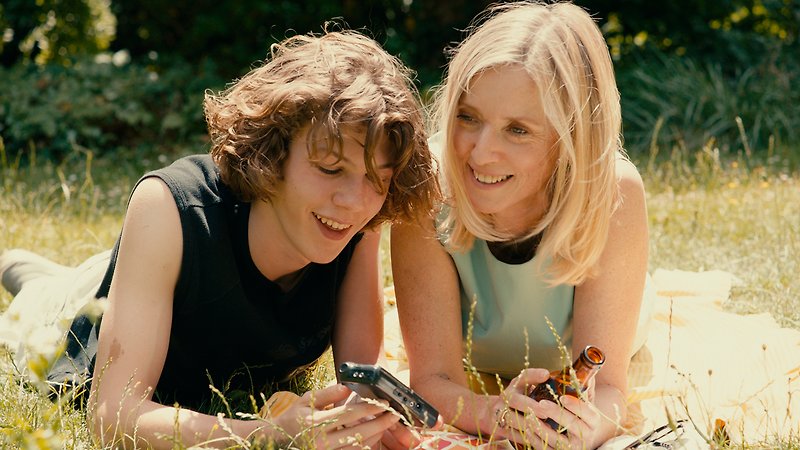A dangerous romance ensues between a successful lawyer and her teenage stepson as Catherine Breillat returns for the first time in a decade having lost none of her propensity to transgress.

Catherine Breillat certainly hasn’t pulled back from her vocation to dumbfound the bourgeoisie… Outrage is her weapon. In Last Summer, every shot finds its target.
Screened as part of NZIFF 2023
Last Summer 2023
L'été dernier
“It began in the son’s room, when the father was away on business. L’enfant thought it was l’amour, but for her, 30-odd years his senior, the sex, lies and audiotape were a mistake. Wild at heart, she’d yielded to the taste of… oh, never mind. Competing for the Palme d’Or at Cannes, Catherine Breillat’s Last Summer echoes films that have come before—most notably, 2019 Danish drama Queen of Hearts, on which it’s based—but it proves most daring in the ways the film departs from its more conventionally moralistic source, and especially in Breillat’s refusal to call either party a parasite.
Yes, the affair between a lawyer and her 17-year-old stepson is a betrayal—of her marriage, of her parental responsibilities, of everything she stands for as an attorney—but that’s nothing compared with how the 50-ish woman deals with it when word gets out in this thought-provoking domestic drama. In reviewing the original, Variety’s Guy Lodge wrote, 'You can practically envisage a Robin Wright-starring U.S. remake'—which isn’t far from the truth. Backed by fearless producer Saïd Ben Saïd (Elle), Breillat gives us the great Léa Drucker (who played far more responsible moms in Close [NZIFF 2022] and Custody [NZIFF 2017]) in the role of Anne, who’s introduced representing an underage girl in a sex-crimes case.
The differences between Last Summer and its source material serve to reveal Breillat’s fascinations as a filmmaker, especially in the latter scenes, when Anne’s fellow adults consciously decide what they’re willing to accept. In keeping with the controversial director’s earlier work, the answer may well be: a lot more than most audiences.” — Peter Debruge, Variety